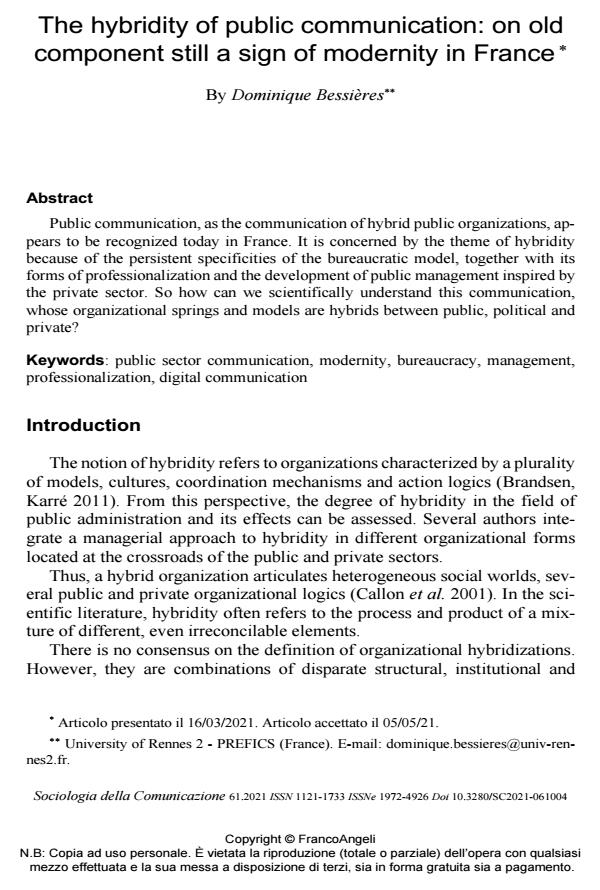The hybridity of public communication: on old component still a sign of modernity in France
Titolo Rivista SOCIOLOGIA DELLA COMUNICAZIONE
Autori/Curatori Dominique Bessières
Anno di pubblicazione 2021 Fascicolo 2021/61
Lingua Inglese Numero pagine 16 P. 36-51 Dimensione file 327 KB
DOI 10.3280/SC2021-061004
Il DOI è il codice a barre della proprietà intellettuale: per saperne di più
clicca qui
Qui sotto puoi vedere in anteprima la prima pagina di questo articolo.
Se questo articolo ti interessa, lo puoi acquistare (e scaricare in formato pdf) seguendo le facili indicazioni per acquistare il download credit. Acquista Download Credits per scaricare questo Articolo in formato PDF

FrancoAngeli è membro della Publishers International Linking Association, Inc (PILA), associazione indipendente e non profit per facilitare (attraverso i servizi tecnologici implementati da CrossRef.org) l’accesso degli studiosi ai contenuti digitali nelle pubblicazioni professionali e scientifiche.
Public communication, as the communication of hybrid public organizations, appears to be recognized today in France. It is concerned by the theme of hybridi-ty because of the persistent specificities of the bureaucratic model, together with its forms of professionalization and the development of public management inspired by the private sector. So how can we scientifically understand this communication, whose organizational springs and models are hybrids between public, political and private?
Parole chiave:public sector communication, modernity, bureaucracy, management, professionalization, digital communication
- Global Public Goods Communication Dominique Bessières, pp.41 (ISBN:978-3-031-90666-4)
- Towards a conversational public administration? Giulia Banfi, Marco Luca Pedroni, in RDBCI: Revista Digital de Biblioteconomia e Ciência da Informação /2025 pp.e026005
DOI: 10.20396/rdbci.v24i00.8680284
Dominique Bessières, The hybridity of public communication: on old component still a sign of modernity in France in "SOCIOLOGIA DELLA COMUNICAZIONE " 61/2021, pp 36-51, DOI: 10.3280/SC2021-061004